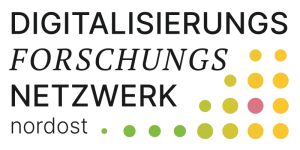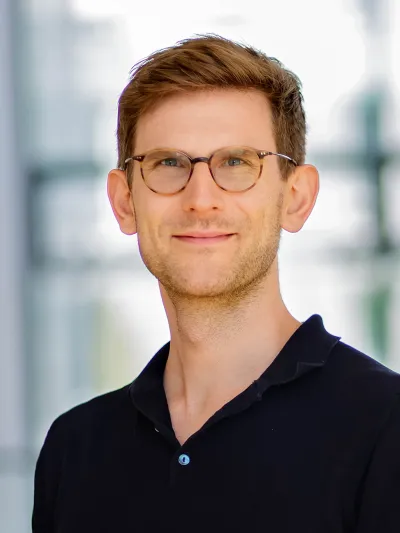#GesellschaftBilden in the Digital Age. Perspectives of Social Work on Technological Challenges
The project establishes a cross-university network on digitalisation in social work as a subject of cooperative research and teaching.
Despite the various processes of technologisation, digitalisation and mediatisation in social work, research of the potentials and limits of digital-technological transformations in social work and the teaching of these topics are underrepresented in university curricula. Social work is confronted in many ways with socio-technical interrelationships and questions of technologically induced transformation processes for the protection of human rights and needs. With this in mind, the University of Applied Sciences Potsdam, the Catholic University of Applied Sciences Berlin, the Brandenburg University of Technology Cottbus-Senftenberg and the Centre for Constructive Educational Science e. V. are convinced that cross-institutional cooperation is necessary to research and communicate the complexity of these topics. With this project, they are therefore establishing the Digitalisierungsforschungsnetzwerk Nordost.
The stakeholders are joining forces to consolidate and expand the network. They will test cross-university courses in order to create a multi-perspective increase in knowledge beyond the institutions. In addition, joint (teaching) research projects will be pursued and academic discourse will be promoted with a public online event and discussion series as well as a publication.
The other goals of the network are open and will develop through the various intentions and joint dialogue of the stakeholders brought together by the initiative, as the following perspectives of the founding members illustrate:
Prof. Dr Daniela Cornelia Stix (Brandenburg University of Technology Cottbus-Senftenberg): "The Digitalisierungsforschungsnetzwerk Nordost is a fantastic initiative which was needed much earlier. The scientific community that deals with mechanisation, digitalisation and mediatisation in social work has so far been very limited. However, the topic is highly relevant to social work and is not just a marginal phenomenon, as social work and the social sphere are undergoing profound social change. With the Digitalisierungsforschungsnetzwerk Nordost , we will hopefully be able to raise awareness of the topic by networking stakeholders. I particularly welcome the intentions of both the cross-university courses and Bachelor's and Master's colloquia as well as the joint supervision of students in their final theses. The project provides us with mutual support. At the same time, we are showing social work students how important it is to build and expand networks. By bringing together prospective professionals from different universities in the region, we are perhaps also laying the first foundations for their networking. I am therefore delighted to be part of the initiative on behalf of BTU Cottbus-Senftenberg."
Prof Dr Cordula Endter (Catholic University of Applied Sciences Berlin): "The establishment of the network has arrived at the right time. This offers all universities in the north east region the opportunity to exchange ideas and cooperate on the topic of digitalisation and digitality in social professions and disciplines. This is something that was missing until now and will further strengthen the discourse on socio-technology in teaching, research and practice – at least that is our goal! Because that is what the initiative is all about: promoting exchange between the various locations and, above all, between academics on the topics of mechanisation, digitalisation and mediatisation. With the different expertise, we can not only inform each other in a collegial setting, but also discuss, learn from each other and tap into the potential of joint research. In this way, we will hopefully succeed in making the social in socio-technology more visible than it has been so far, both theoretically, methodologically and in terms of practice."
Prof. Dr Karsten Krauskopf (University of Applied Sciences Potsdam): "For me, the Digitalisation Research Network North East represents a desideratum, as it focuses on research and cooperation on the topics of digitalisation and digitality, especially at universities of applied sciences. At the same time, the joint work in terms of content is also anchored in education. A bridge is being built between research and teaching in this area. The network bundles forces and the universities establish themselves as important institutions for researching and communicating the phenomena of social work in the north-east region. At the same time, I like the prospect that the cross-university structures will be consolidated and that new joint research, events or seminars can be realised quickly."
Julius Späte (project manager): "The phenomena of mechanisation, digitalisation and mediatisation are leading to fundamental changes in society and therefore also to profound changes for social work. Existing social work theories need to be adapted to current phenomena and their transformative potential. At the same time, technological developments are also influencing the normative positions of the profession, which are reflected in the work with digital technologies and the mediatised living environments of the addressees. This requires, among other things, far more research, reflection and discourse between the discipline and the profession. We have a lot of work ahead of us, which we can do better if we join forces. The Digitalisierungsforschungsnetzwerk Nordost offers precisely the low-threshold opportunities for cooperation between universities and practitioners."
Prof. Dr. Julia Prieß-Buchheit (ZKE – Zentrum für konstruktive Erziehungswissenschaft e. V.): "On behalf of the ZKE, we welcome the initiative for stakeholders to engage in a rational dialogue about the current phenomena of mechanisation, digitalisation and mediatisation in social work. As an advisory institution for the network, we have always accompanied discourses in the field of social work and education over the years that take real-world problems as the starting point for research and scientific dialogue in order to ultimately develop concrete, practice-oriented solutions. We are therefore delighted to provide the framework for dialogue and exchange and to accompany the first steps of the Digitalisierungsforschungsnetzwerks Nordost."


